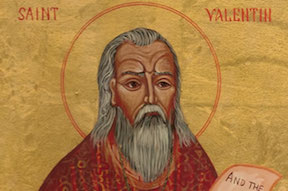Halloween: Are Witches and Wizards Evil?
Six years ago, my friend and former student Marla Alupoaicei published a book, Generation Hex (Harvest House). She did so because she’d had little interaction with Wiccans until she was in college. And there she met a girl in a writing class who told her, “I’m a white witch.” Marla didn’t know what to say, and having been taught to stay away from anyone involved with witchcraft, she remained silent. Marla still regrets being unequipped to have a spiritual conversation with that girl. But the experience led her to co-author a book that helps Christians have meaningful conversations with Wiccans.
When the book came out, I ran a column here that included some myths and facts from it. And because they are still relevant, I’m repeating them here—along with some comments about media depiction of witches and wizards.
Myth #1: You can tell a person is a Wiccan just by looking at him or her.
Truth: “The average witch is a beautiful twenty-five year old,” according to Jami Shoemaker of Llewellyn Publishers. Wiccans do not necessarily dress “Goth” (nor do they ride on broomsticks).
Myth #2: Wiccans are Satan worshippers who sacrifice living beings.
Truth: Wiccans do not worship Satan directly. They consider Satan part of the Christian tradition; most don’t even believe that he exists. They do not perform human or animal sacrifices.
Myth #3: Wiccans try to convert others to their religion.
Truth: Wiccans read books on Christianity and other religions. They typically do not, however, try to convert others to their faith.
Myth #4: Wiccans don’t follow any rules.
Truth: Wiccans follow the Wiccan Rede, which states, “’An it harm none, do as ye will” (translation: “As long as it doesn’t harm anyone, do whatever you want”). They also follow the Rule of Three, which states that the consequences of a person’s actions, whether positive or negative, will return to that person threefold.
Myth #5 Wicca and Christianity are compatible.
Truth: Scripture clearly states that Christians may not participate in any form of witchcraft. Practices associated with witchcraft include séances, casting spells, palm reading or fortune telling, using Tarot cards, communicating with spirits, playing with Ouija boards, or playing occult-related video games.
Marla concludes by saying, “The truth is that most Wiccans enjoy engaging in honest, open dialogue about their faith. If you show genuine interest in them, most will be glad to discuss their beliefs and experiences with you. When you have the opportunity, share a testimony about how God has transformed your life through Christ.”
While every witch needs a saving relationship with Christ, not every witch is wicked in the ways many people think. It's worth our time to learn about their worldview.
* * *
Here’s an important shift when we come to the world of literature (and the movies made from literary stories): witches and wizards are not necessarily Wiccans. Nor are they necessarily anti-Christ or unChristian. Nor is making them out as “good guys” necessarily motivated by an author’s desire to desensitize readers to evil—not any more than Jesus using a Samaritan as a good example in his story was an attempt to validate what Samaria had done to Jewish theology.
When we enter the realm of fantasy, the author gets to decide the rules. Sometimes velveteen rabbits can talk. And kids fly on broomsticks. And good characters wearing pointy black hats can call themselves “witches” but stand for all that is good. I dare say this is where Christians have often made mistakes in assessing media. Because in speculative fiction, authors sometimes change the meanings typically given to “witch” and “wizard.” Most of the time, as was true of Shakespeare writing MacBeth’s witches’ scene, authors do use words in ways we typically define them. But sometimes writers turn upside-down typical usage to reveal our prejudices or to keep us paying attention—much as Jesus did. So rather than forcing dictionary meanings of words on a narrative, we need to study how the author uses them.
Consider Glinda the Good (The Wizard of Oz), McGonagall (Harry Potter), Gandalf (Lord of the Rings), and Maguire's Elphaba (Wicked). They stand for all that is good, even if they assume the label "witch" or "wizard," and three of the four even dress as those we associate with the powers of darkness. Meanwhile, C. S. Lewis does not present the evil White Witch in Narnia as robed in darkness but rather as an angel of light.
So three suggestions: First, in real-world human interactions, engage those who self-identify as witches and wizards, but avoid any practices associated with darkness. Second, in the world of speculative fiction, avoid assuming every witch or wizard is associated with darkness. Discern the storyteller’s meaning. Third, engage the White Witch, but don't dress up as one. If your family trick-or-treats and your child wants to dress as a witch or wizard, seize the teachable moment. Consider allowing an embodiment of a Gandalf or a McGonagall, while discouraging the ermine-white-collared beauty posing as good, but evil to the core. Find out your child's intentions, and if they're for good, stress that "it's what's on the inside that counts."




4 Comments
Richard Mabry
Truth vs fiction
Sandra, excellent information. Some people need only a smattering of information to form a steadfast opinion, and a few need none. I once received a scathing letter about one of my novels that mentioned hypnosis to help uncover a blocked memory of the protagonist. Why? Because hypnosis was "the same as witchcraft."
Thanks for shedding some light on the subject.
Sandra Glahn
Tai Kwan Do, Too
Thanks, Dr. Mabry. One of my colleagues at the seminary is a tenth-degree black belt, and people often tell him they won't do Tai Kwan Do because it requires interaction with the occult! He's a seminary professor! I'd think he's got the spiritual foundation necessary to assess such things. I'm glad people are trying to be careful, but sometimes we put hedges around an evil that does not exist, but we fill our minds with all sorts of actually dangerous ideas and think nothing of it!
Rev. Pelley
witches
ALL witches are serving evil, even if they don't know it.
Alan G Phillips Jr
Christianity and the Occult
An increased focus on occult practices and false religions is foretold in prophetic passages of the Bible (See 1 Tim. 4:1; 2 Thess.2:9-12; Rev. 9:20-21). Today, not only are we seeing many of these developments in non-Christian sectors of society, but disturbingly, professing Christian congregations are accommodating their beliefs and practices to non-Christian worldviews. Some churches even blindly endorse a wide range of occultism.
A brief look at what is happening in many contemporary churches across America will provide evidence for this unsettling trend. Several key points are worth noting:
1. Many congregations have repeatedly absorbed, promoted and even celebrated popular authors who positively portray occult themes and practices in their books and movies:
http://www.umc.org/news-and-media/umtv-churchs-harry-potter-halloween
http://www.pampapcusa.org/node/249
http://pilgrimduluth.org/events/event/hogwarts-halloween-party/
2. Also, in their aggressive efforts to promote an unbiblical ecumenism or even universalism, many professing Christian chuches have downplayed the serious differences between core Christian doctrines and occultic teachings.
For example, the contemporaey emphasis on “spiritual” practices as opposed to “doctrine” (sound teaching) has marked a recent “it’s-all-good” ecumenical trend in many churches today. See the following examples:
http://chicagowelcomingchurches.org/resources.php
http://www.walkerwp.wesac.org/walker-community-united-methodist-church/who-we-are/
https://roundtown.com/event/10186733/Yoga-Chakras-Teachings-and-Seed-Mantras-with-Scott-Campbell-Norman-OK
http://www.graceumc.net/yoga
http://www.goddiscussion.com/110177/pastor-of-california-church-sponsoring-interfaith-dialogue-with-wiccans-teaches-tolerance-to-concerned-citizen-wiccans-covered-by-gods-grace/
3. Churches that profess to be Christian, yet accepting of Wiccan rituals or meditative techniques from Eastern religious traditions, ignore the clear testimony from the Bible about the dangerous potential of these unstable alliances and the need for standing apart from idolatrous worship. Both the Old and New Testaments unambiguously condemn occult associations and practices (See Dt. 18:9-14; 2 Ki. 21:3&6; 23:24; 2 Chr. 33:5-6; Dan. 2:27-28; Acts 19:18-20; Gal. 5:19-21; 2 Thess. 2:9-11; 1 Tim. 4:1-2; Rev. 22:15). Learning about Wiccan worldviews or the use of mantras in Hindu devotion may be useful for evangelistic, missionary or apologetic purposes, but to embrace these things as valid Christian doctrines/ practices is erroneous and disobedient to God’s word.
4. Finally, even though many Christian denominations do not necessarily subscribe to the Reformation cry of sola scriptura (by scripture alone), nevertheless, their own historic writings and recent doctrinal commitments acknowledge the incompatibility between Christian practice and occult experimentation. For example, here are some clear written excerpts about the dangers of occult involvement from recent handbooks of Christian denominations:
Church of God (Cleveland, Tennessee)– “Sinful practices which are made prominent and condemned in these scriptures include homosexuality, adultery, worldly attitudes (such as hatred, envy, jealousy), corrupt communication (such as gossip, angry outbursts, filthy words), stealing, murder, drunkenness and witchcraft. Witchcraft has to do with the practices of the occult, which are forbidden by God and lead to the worship of Satan” (2013).
Free Methodist Church — “Occult practices, such as spiritism, witchcraft and astrology must be avoided” (2007, 58).
Church of the Nazarene — Christians should avoid “…such social evils as violence, sensuality, pornography, profanity, and the occult, as portrayed by and through the commercial entertainment industry in its many forms…” (2013, 48).
Wesleyan Church — Basic Principles: “To seek only the leading of the Holy Spirit and to abstain from all forms of spiritism, such as the occult, witchcraft, astrology and other similar practices.
Lev. 19:31; Deut. 18:20-14; Acts 19:18-19; Gal. 5:19-20. ” (2012, 24).
Missionary Church — “The Scriptures are also clear in their warnings and admonitions to God’s people concerning relations with Satan, demons, and occult practices…” (2013, 60).
Christ’s Great Commission commands all followers of Jesus to spread the good news to all the world (Mt. 28:18-20), and this necessitates associating with people who do not understand or share our Christian faith, whether Hindu, Wiccan or Atheist. However, the same Christians are commanded to stand apart from false teachings and occult endorsement (Lev. 11:44; Rom. 12:1-2; Col. 3:5-11; 1 Pet. 1:14-17; 2 John 10-11; Jude 3-4; Rev. 18:4-5).When churches put a stamp of approval on the occult, they violate both commands of the Lord.
References and Helpful Resources
Abanes, Richard. Harry Potter: The Menace Behind the Magick (Michigan: Horizon Books, 2001).
Barnhouse, Donald Grey. The Invisible War. Grand Rapids: Zondervan Publishing House, 1965.
Boa, Kenneth. “Warfare Spirituality: Warfare with the Flesh and the World” in Conformed to His Image:Biblical and Practical Approaches to Spiritual Formation” (Grand Rapids, Michigan: Zondervan, 2001).
Chafer, Lewis Sperry. Satan. Chicago: Moody, 1942.
Church of God, Beliefs: “Moral Purity” (2013) at http://www.churchofgod.org/practical-commitments/moral-purity
Constitution of the Missionary Church. Fort Wayne, Indiana: Denominational Office, 2013.
Discipline of the Wesleyan Church 2012. Wesleyan Publishing House: Indianapolis, Indiana, 2012.
Edwards, Catherine. “Wicca Infiltrates the Churches” http://www.confessingumc.org/news-events/wicca-infiltrates-the-churches/ (Reprinted with permission of Insight. News World Communications, Inc., 19tey, John. Sermon LXXVII, “Of Evil Angels” in Sermons, vol 2: The Works of the Rev. John Wesley, A. M., (New York:The Methodist Book Concern, 1788), pgs. 145-146.
Free Methodist Church of North America, 2007 Book of Discipline. The Free Methodist Publishing House: Indianapolis, Indiana, 2008.
Manual/ 2013-2017: Church of the Nazarene. Nazarene Publishing House: Kansas City, Missouri, 2013.
Unger, Merrill F. Demons in the World Today (Carol Stream, Illinois:Tyndale House, 1972).